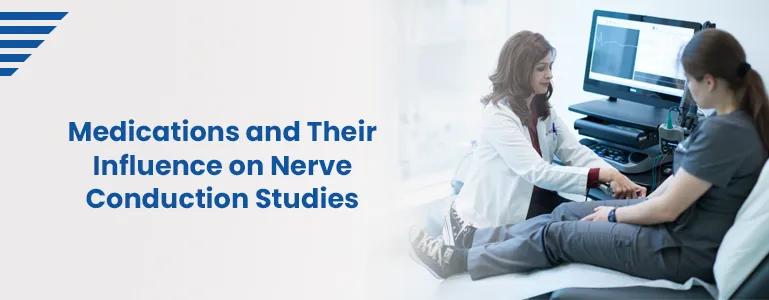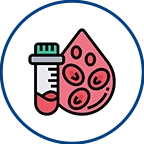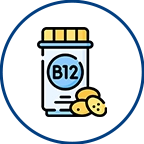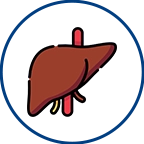Medications and Their Influence on Nerve Conduction Studies

Nerve Conduction Studies (NCS) play a vital role in diagnosing and assessing nerve-related conditions, providing valuable insights into the functioning of the peripheral nervous system. However, it's essential to recognize that certain medications can impact the results of NCS, potentially leading to altered readings and interpretations. This blog post explores how various drugs can affect nerve conduction study outcomes and what patients and healthcare professionals need to know about this interaction.
Home Sample Collection
Understanding the Interaction:
Medications can influence nerve conduction studies through their effects on nerve transmission, muscle activity, and overall neuromuscular function. Some drugs may enhance nerve conduction, while others can suppress it. Awareness of these potential interactions is essential to ensure accurate diagnostic results.
Medications that Affect Nerve Conduction Study:
Local Anesthetics: Local anaesthetics like lidocaine can affect nerve conduction by blocking nerve impulses. These medications can lead to reduced amplitude and prolonged latency in NCS recordings.
Neuromuscular Blocking Agents: Drugs used during surgical procedures to induce muscle relaxation, such as succinylcholine or vecuronium, can interfere with muscle response during NCS, affecting motor conduction measurements.
Antiepileptic Medications: Certain antiepileptic drugs, such as carbamazepine and phenytoin, can alter nerve conduction parameters, making it essential to consider a patient's medication history when interpreting NCS results.
Beta-Blockers: Beta-blockers may impact sympathetic nerve activity, potentially influencing autonomic NCS parameters.
Calcium Channel Blockers: Medications like verapamil and diltiazem can affect nerve excitability and muscle contractility, potentially impacting NCS recordings.
Muscle Relaxants: Muscle relaxants used for conditions like muscle spasms or spasticity can affect motor nerve conduction, leading to altered results.
Certain Antibiotics: Antibiotics like aminoglycosides can have neuromuscular effects that influence NCS readings.
Anti-Inflammatory Drugs: Some nonsteroidal anti-inflammatory drugs (NSAIDs) may indirectly affect nerve conduction by altering inflammation and oedema.
Implications for Patients and Healthcare Professionals:
Patient History Assessment: Healthcare providers must gather a comprehensive medication history from patients before performing NCS to interpret the results accurately.
Communication Between Healthcare Providers: Collaboration between specialists is essential when patients take medications that could impact NCS. Neurologists, orthopedists, anesthesiologists, and other relevant experts should collaborate to ensure accurate diagnosis and treatment.
Temporary Discontinuation: In some cases, healthcare professionals might consider temporarily discontinuing certain medications before performing NCS to obtain more accurate results. However, this decision should be carefully made, weighing the potential risks and benefits.
Education for Patients: Patients undergoing NCS should be educated about the potential impact of their medications on the test results. Open communication ensures that both patients and healthcare providers are well-informed.
Conclusion:
Medications can significantly influence nerve conduction studies, highlighting the importance of thorough patient assessment and communication between healthcare professionals. By understanding the potential interactions between medications and NCS outcomes, medical practitioners can provide more accurate diagnoses and treatment plans for individuals with nerve-related conditions.
Frequently Asked Questions
How do medications impact nerve conduction studies?
Medications can affect nerve conduction studies by influencing nerve transmission, muscle activity, and overall neuromuscular function. Some drugs may enhance nerve conduction, while others can suppress it, potentially leading to altered NCS results.
Which types of medications can affect nerve conduction studies?
Various medications can impact NCS, including local anaesthetics, neuromuscular blocking agents, antiepileptic drugs, beta-blockers, calcium channel blockers, muscle relaxants, certain antibiotics, and anti-inflammatory drugs.
How do local anaesthetics impact nerve conduction studies?
Local drugs like lidocaine can block nerve impulses, potentially causing reduced amplitude and prolonged latency in NCS recordings.
Can antiepileptic medications affect nerve conduction studies?
Certain antiepileptic drugs, such as carbamazepine and phenytoin, can alter nerve conduction parameters, potentially affecting the interpretation of NCS results.
What are neuromuscular blocking agents, and how do they influence NCS?
Neuromuscular blocking agents like succinylcholine and vecuronium induce muscle relaxation during surgical procedures, impacting muscle response and motor conduction measurements in NCS.
Do beta-blockers affect nerve conduction studies?
Beta-blockers can influence sympathetic nerve activity, potentially affecting autonomic nerve conduction parameters.
How can healthcare providers mitigate the effects of medications on NCS results?
Healthcare providers should gather a comprehensive medication history, collaborate with specialists, consider temporary discontinuation of drugs (if appropriate), and educate patients about potential medication-related impacts on NCS.
Can temporary discontinuation of medications improve NCS accuracy?
Sometimes, healthcare professionals consider temporarily discontinuing certain medications before NCS to obtain more accurate results. However, this decision should be carefully evaluated based on individual patient circumstances.
What is the role of communication between healthcare professionals in addressing medication-related impacts on NCS?
Collaboration between specialists, such as neurologists, orthopedists, and anesthesiologists, is essential to ensure accurate diagnosis and treatment plans when patients take medications that could influence NCS.
How can patients prepare for a nerve conduction study if they are taking medications?
Patients should provide a comprehensive medication history to their healthcare providers before undergoing NCS. This helps ensure that potential medication-related effects on NCS are considered when interpreting results.
Are there specific medications that patients should avoid before nerve conduction studies?
It depends on the individual patient and their particular medical condition. Healthcare providers will assess the patient's medication regimen and determine if any adjustments are necessary before conducting NCS.
Book Appointment
Our Locations Near You in Hyderabad
3KM from Banjara Hills
1.9KM from Yusufguda
3KM from Madhura Nagar
5KM from Shaikpet




